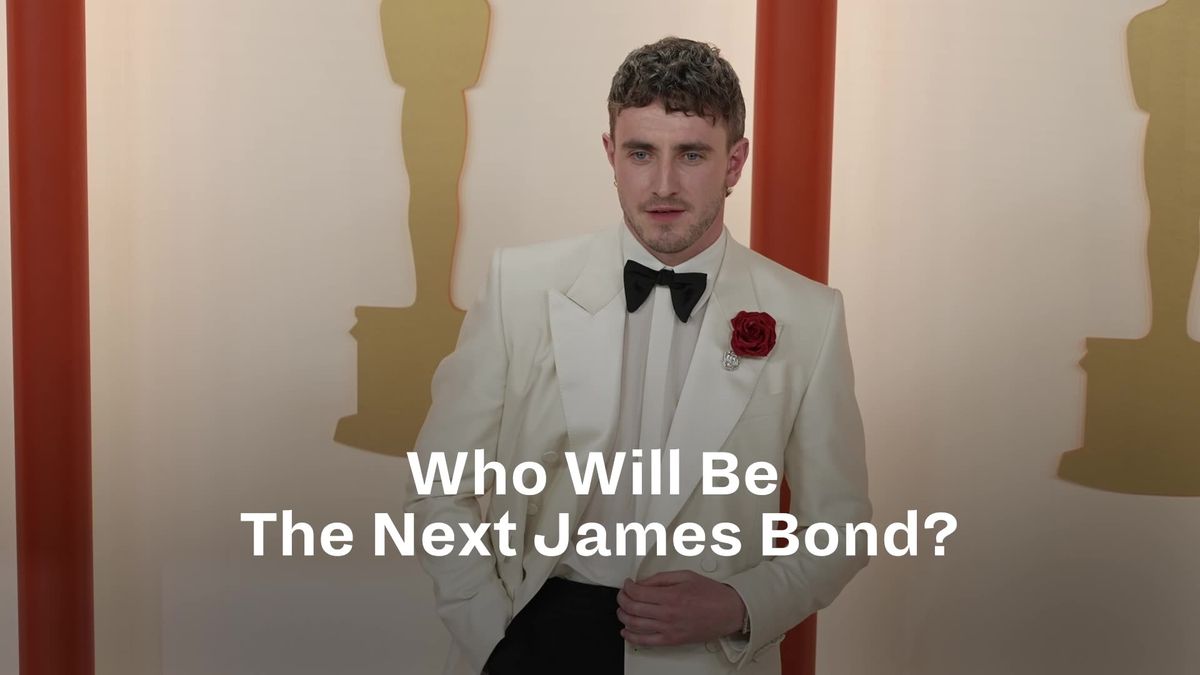Alan Ritchson seems like a good egg. He has said many wise and interesting and worthwhile things lately, and his Reacher is big dumb fun. But we’re going to have to have words. He’s lost the run of himself. Ritchson’s heaved his gigantic frame from Jack Ryan’s megagym into the James Bond’s cocktail bar, and has said some unfortunate things.
“I love those larger-than-life, over-the-top action thrillers and spy movies and the heists that are smart and ahead of the audience,” he told Entertainment Weekly this week, kneeing over a low pine table and slapping a pint of wasabi peas onto the carpet. “That's really great, but I feel like Bond, to me personally — people are going to hate me for saying this — I love Bond, but I feel like it's all a little misogynistic and predictable at this point.”
Right. Right. Alan. Right. We like you. You’re a smart lad. There’s no easy way to say this: there have been other Bond films since the one where Roger Moore gets perved on by a robot while getting off with Pola Ivanova. You can’t really call Daniel Craig's run of movies misogynistic or predictable. Anyway, Ritchson went on to say:
“Reacher, to me, is like the American Bond, and I think it's a cool way to go about doing it where it's a little less purposefully cool. He’s not in on how slick he is. I don't feel like we can have characters these days that are in on the joke. Either they know that they're funny, they know that they're smart, they know that they're very cool or capable or invincible — I feel like it reduces the stakes of stories, and we've seen too many movies, we're too savvy as an audience to be entertained by that.”
Is it small-time behaviour to get twitchy about Americans claiming they’re out-Bonding Bond? Yes. You’ve got to draw a line somewhere, though, and the idea of an American Bond is an odd one. You know exactly what Ritchson’s getting at, but get your X-ray shades on and have a proper look at it, and the thing starts to peel apart. There are lots of spies who go on globetrotting adventures with varying degrees of glitziness, doing in operatically evil bad guys and shagging with abandon. But just insisting that your hero is the American 007 because he’s got some gadgets and a glorified civil service gig doesn’t make him a Bond figure.
America was desperate for its own James Bond long before Bond was a box office juggernaut. The first screen Bond adaptation recast him as the American Jimmy Bond, played by Barry Nelson from San Francisco in the CBS 1954 TV movie of Casino Royale. (Nelson later admitted he was winging it, having not read any of Fleming’s books.) In 1966 James Coburn’s Our Man Flint was explicitly a Bond knock-off which made a lot of the same gags Austin Powers would further down the line.
Steven Spielberg leaned on the Bond movies for Indiana Jones – it’s not an accident that Sean Connery plays Indy’s dad in the third one. Jack Reacher author Lee Childs was in the frame to write Bond novels for the Fleming estate, but when it didn’t happen he cracked on with his Reacher novels. Even their names seem to be trying to homeopathically imbue their heroes with a bit of that MI6 golddust: Jason Bourne. Jack Bauer. James Bond.
This isn’t to say they’re always inferior. American Bonds have ended up overtaking and influencing the Bond franchise itself. Most obviously, the Bourne series arguably jolted Eon so sharply that they decided to refresh the franchise directly after Die Another Day, which had just delivered Bond's biggest box office numbers so far. It’s hard to imagine that the extraordinary stunt work on the Mission: Impossible movies hasn’t pushed the Bond team to go bigger too.
The big difference, though, and the reason you can’t just slap a Stetson on a spy and call him American Bond is that Bond fundamentally knows that what he’s defending is something which doesn’t really exist. American Bonds tend to be ambivalent about the agencies they work for and resentful of overbearing governments – Ethan Hunt works for the American state, but it can’t even acknowledge that he exists; Bourne realises that it’s fucked up his entire life, but also that at one point he believed enough in the cause to volunteer for it to be fucked up – while also deeply believing in the project.
There can be no American Bond because at bottom, there’s a level of self-loathing built into the character which only comes with knowing that you are, as Alec Trevelyan tells him in GoldenEye, “Her Majesty’s loyal terrier, defender of the so-called faith”. Ever since Moore took his perma-startled stare into retirement after A View to a Kill and Timothy Dalton took up the post, a deep ambivalence to the idea of keeping the British end up has been the Bond mode.
From Connery to Lazenby to Moore, Bond was Britain’s id: first recapturing the old glories of the war and the empire, then looking more and more sleazy and grim. Since then he’s been laced with this revulsion at what the state does in all our names. There just isn’t that level of guttural introspection at play in most American Bonds, though Bourne did get in there and rummage around a bit in the post-War on Terror landscape. Weirdly, the closest an American Bond has come to that contempt of the state is through Captain America, and his insistence on playing by the rules.
Ritchson is, as we’ve established, a sound fella. But as he walks back out of the metaphorical cocktail bar, he might turn back and ask one question: “For England, James?” No, Alan. For me.













